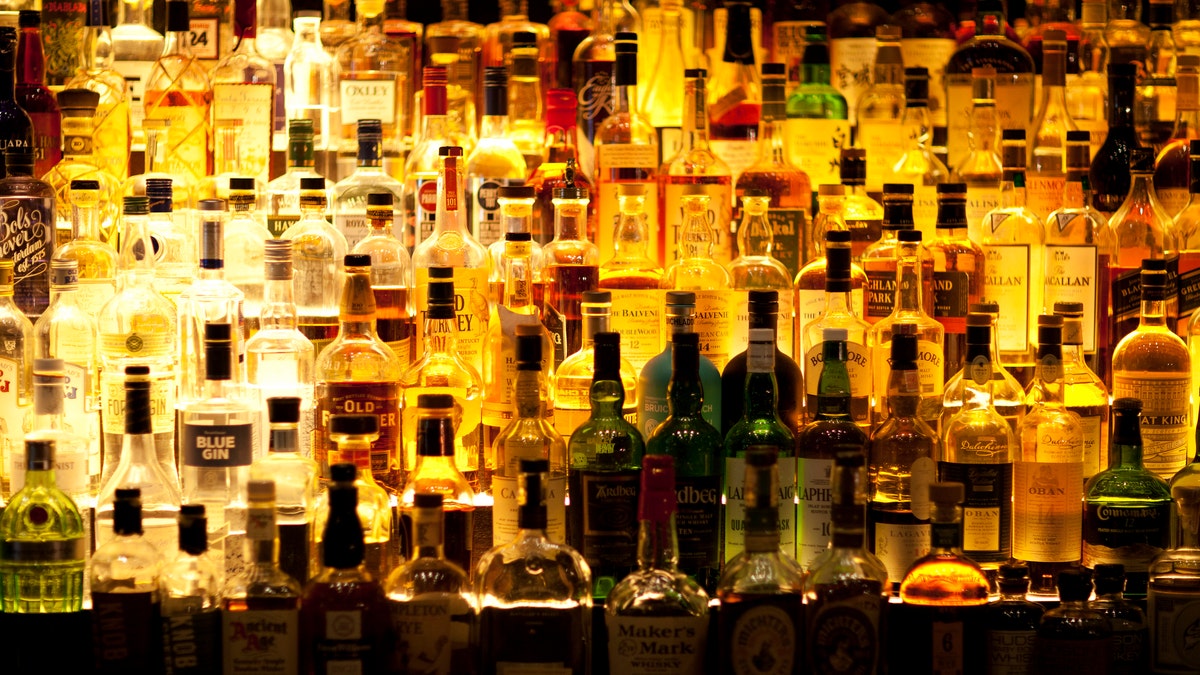
Various liquor bottles sitting behind bar, backlit (iStock)
College students who are struggling to keep up in class may want to lay off the alcohol and marijuana. A new study links heavy use of both substances to lower grades.
Substance abuse has long been tied to poor achievement, worse graduation rates and difficulties finding and keeping good jobs. The current study takes a closer look at grade point averages (GPAs) for U.S. students who start college with similar academic potential but use different amounts of pot and booze.
Compared to sober youth, students who drink a lot but don't smoke much pot tend to get lower grades during the first semester of college but then achieve similar GPAs, the study found. This comparison looks much worse for heavy users of both marijuana and alcohol - these students started out with lower GPAs than their sober peers and continued to get worse grades.
"We were surprised that students who consumed fairly large quantities of alcohol alone and very little marijuana did not have a consistent decrease in GPA," said lead study author Shashwath Meda of the Olin Neuropsychiary Research Center and Hartford Hospital in Connecticut.
"Those who moderated drug use over the period of the study were able to recover and perform better academically," Meda added by email.
Both alcohol and pot can impair memory, attention, executive function and the ability to identify visual and spatial differences among objects. This can make students less efficient at studying and retaining information in class, the researchers note in the journal PLoS ONE.
They examined data from monthly alcohol and drug use surveys completed by 1,142 students over four semesters starting in freshman year. These surveys asked how many days in the past month students smoked pot or drank, as well as the number of drinks they had on each occasion when they consumed alcohol.
They sorted students into three groups: youth who used little or no alcohol or marijuana; people who drank a lot but didn't smoke much pot; and heavy users of both substances.
Researchers also got GPA data on each participant from college and university officials and results from the Scholastic Aptitude Test (SAT) exams used for college admission.
"The three groups did not differ in SAT scores at the beginning of college," said Wayne Hall, of the Center for Youth Substance Abuse Research at the University of Queensland in Australia.
"That makes it less likely that less intellectually able students are more likely to get involved in heavy drinking and marijuana use," Hall, who wasn't involved in the study, added by email.
For the first semester, the mostly sober student group had an average GPA of 3.1 and the heavy drinkers had an average GPA of 3.03, a statistically meaningful difference even though both are roughly equivalent to a B grade. Not all colleges and universities use the same grading process.
The heavy drinkers and pot smokers trailed farther behind, with an average GPA of 2.66, which might be a B- or a C+. Students who cut back on the pot did better over time than youth who remained heavy drinkers and smokers throughout the study.
Limitations of the study include the lack of data on final GPAs and graduation rates, the authors note. The study also didn't examine the difficulty of courses students chose, which could impact GPA.
Still, the findings suggest efforts to limit substance use during the crucial first semester of college may help more students succeed, the researchers conclude.
"For many students, high achievement during the first two years of college provides them with skills and confidence that help propel their performance during the final years of college," said Dr. Mark Olfson, a psychiatry researcher at Columbia University in New York who wasn't involved in the study.
"The new findings make clear the real academic risks to college students posed by combined heavy alcohol and marijuana use," Olfson added by email. "Parents should be encouraged to have open discussions about alcohol and marijuana with their children before they go off to college."




















